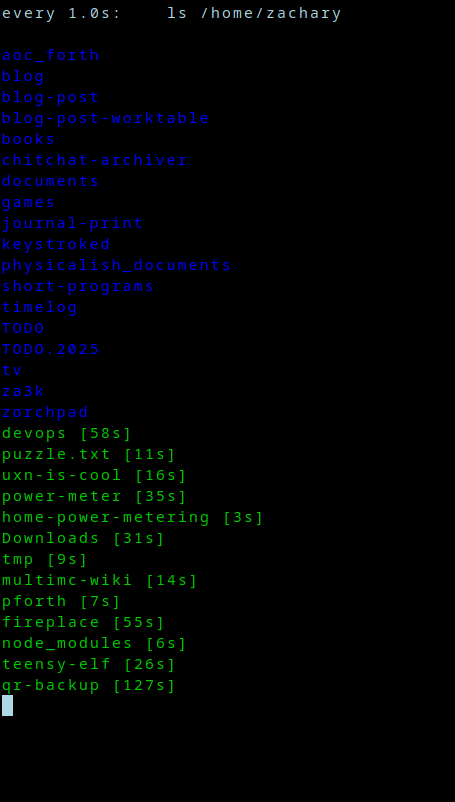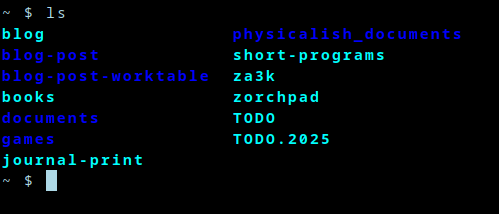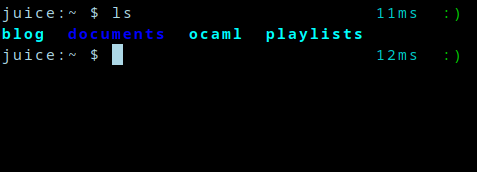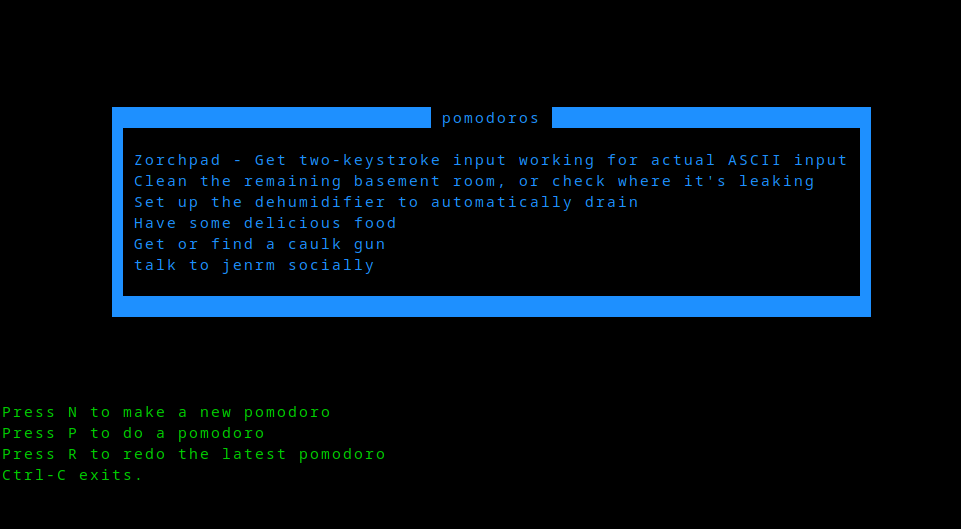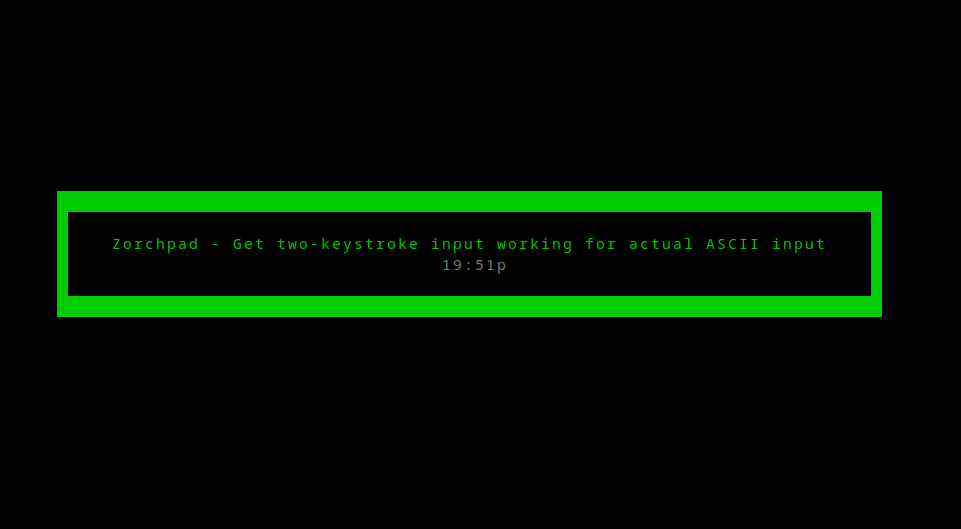Sometimes I try to figure out what to do in a given week, and my first step is to think "what are my long term goals?". Then I realize I have no long-term goals. I sit down and think, "Hmm, what do I want to do with my life?" Eventually I give up, depressed, and go make breakfast or something.
Recently I tried going the other way, with much more success. I call this exercise telescoping. It takes 7 minutes, and is performed as follows:
- Open a text document or grab a piece of paper. Grab a kitchen timer with an alarm, or your phone's alarm app.
- For one minute, answer: What do I want to happen today?
- For one minute, answer: What do I want to happen this week?
- For one minute, answer: What do I want to happen this month?
- For one minute, answer: What do I want to happen this year?
- For one minute, answer: What do I want to happen this month?
- For one minute, answer: What do I want to happen this week?
- For one minute, answer: What do I want to happen today?
I found this a bit enlightening. Here's an early example (I type fast):
Today
- Enjoy myself, do some intention journaling.
- Make at least a little progress on the zorchpad
- Socialize with someone enjoyably
- Become a little more long-term coherent
This Week
- Work on the puzzle contest with XXX
- Hang out with YYY
- Get enough sleep!
- Maybe get exercise
This Month
- Make a prototype zorchpad and start carrying it around
- Release qr-backup with no scary warnings
- Continue to learn about electronics a bit, possibly
- Have some kind of new social thing in my life
This Year
- Get an income source where I don't have to do anything, and relax
- Have a satisfying version of zorchpad
- Learn electronics
- Continue to learn programming languages
- Spend a bunch of time chilling with friends
- Get a boyfriend
This Month
- Make a prototype zorchpad and start carrying it around
- Keep my focus on zorchpad and intention journalling through the puzzle contest
- Make 1 new friend -- might be hard, so at least attend social events in a more friend-condusive way
This Week
- Breadboard a zorchpad
- Hang out with XXX
- Work on the puzzle contest with YYY. Wait, would she actually enjoy it? A: Yes!
- Help someone with their quest!
Today
- Work on breadboarding a zorchpad
- Order zorchpad parts -- at least buffers/shift registers!
- Write up telescoping in a blog post
- Possibly, think about long-term planning a little maybe perhaps
- Think about how to get sleep consistently, maybe?
I realized went from "Make progress on the zorchpad" to having a specific list of parts to order, and noticing I needed sleep. It helped me prioritize what I wanted to do.
I think it's more helpful to think about outcomes (What do I want to happen) rather than tasks (What do I need to do?), although I usually try to do both.
I did this two or three times, and kept finding it helpful. I decided to find out what happened if I did it every day.
Two weeks of doing it daily, I will report: it was neither super helpful nor a waste of time?
Basically, it was pretty helpful to think through things I hadn't. The main benefit of doing this every day was keeping long-term goals in sight, but I was no longer thinking through new things much.
The most surprising thing for me was that one minute quickly became too long. I reduced it to 30 seconds per step.
On the one hand, it's not that helpful. On the other hand, it takes 3.5 minutes, and it's a nice way to orient to the day. So, might or might not keep doing it.
The most useful part is that I can see my long term goals. Each day, they can shift. Do I want to keep working toward this thing? Have I had a long term goal that I haven't been working toward? Writing it anew each day is a much different feeling than glancing at a to-do list and either crossing it out or ignoring it (and feels much healthier).
Overall I'd recommend trying it at least once. I don't think it's for everyone, but I suspect it will help people like me that don't have clear goals.

